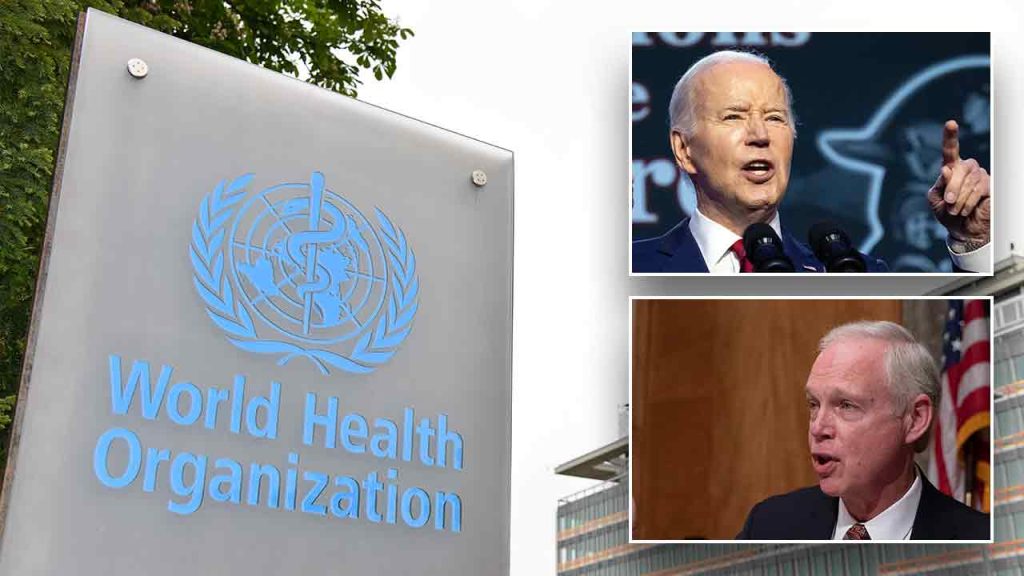Sen. Ron Johnson, R-Wis., has led the Republican Senate conference in calling on President Biden to reject agreements that would expand the authority of the World Health Organization (WHO) in the case of a global pandemic. In a letter signed by all 48 other Republican senators, they urged Biden not to join any pandemic-related treaty, convention, or agreement being considered at the 77th World Health Assembly. The senators emphasized that any such agreement would be considered a treaty, requiring the concurrence of two-thirds of the Senate under the Constitution. The World Health Assembly, which is the WHO’s decision-making body, will take place from May 27 to June 1, and international agreements are expected to be considered.
Critics, including Senate Republicans, have labeled the latest draft of the WHO’s new pandemic response treaty as “dead on arrival.” They argue that the treaty focuses on mandated resource and technology transfers, infringing on intellectual property rights, free speech, and enhancing the WHO’s authority, rather than addressing the organization’s shortcomings. The senators also noted that the origin of the COVID-19 virus remains unclear due to Beijing’s obstruction of a legitimate independent investigation. While the Biden administration has committed to enhancing global coordination to combat pandemics, it has also expressed concerns about elements of the proposed WHO treaty, particularly regarding the protection of pharmaceutical patents.
Senate Republicans, led by Sen. Ron Johnson, emphasized that the U.S. cannot afford to ignore the WHO’s failures and must insist on comprehensive reforms before considering amendments to the International Health Regulations (IHR) or any new pandemic-related treaty that would increase WHO authority. They highlighted the need for the WHO to address its basic functions and conduct a legitimate independent investigation into the origin of the COVID-19 virus before pursuing new agreements that would expand the organization’s authority. Despite Biden’s administration’s commitment to global coordination in combatting pandemics, officials have criticized elements of the proposed WHO treaty, emphasizing the need for outcomes that are effective, protect intellectual property rights, promote innovation, and strengthen investments in global health security.
Sen. Ron Johnson and other Republican senators, including Minority Leader Mitch McConnell and Minority Whip John Thune, have voiced strong opposition to any potential support from the Biden administration for the international agreement. They raised concerns about the implications of the treaty on intellectual property rights, free speech, and the authority of the WHO, urging the administration to prioritize comprehensive reforms of the organization and conducting a legitimate independent investigation into the origins of the COVID-19 virus. The growing opposition from Senate Republicans underscores the challenges facing the Biden administration in navigating global health agreements and addressing concerns related to the WHO’s response to the pandemic.
Sen. Ron Johnson has been a vocal critic of Dr. Anthony Fauci, the former chief medical adviser to the president, and the precautions put in place during the COVID-19 pandemic in the U.S. He has also criticized the pharmaceutical industry and vaccination mandates, advocating for those who claim to have suffered injuries from the shots. Johnson’s leadership in calling on President Biden to reject agreements that would expand the authority of the WHO reflects broader Republican concerns about the organization’s response to the pandemic and the need for comprehensive reforms. The Biden administration’s commitment to global coordination in combating pandemics faces challenges from Senate Republicans who are demanding greater scrutiny of international agreements and emphasizing the protection of intellectual property rights and free speech in any proposed treaty.













